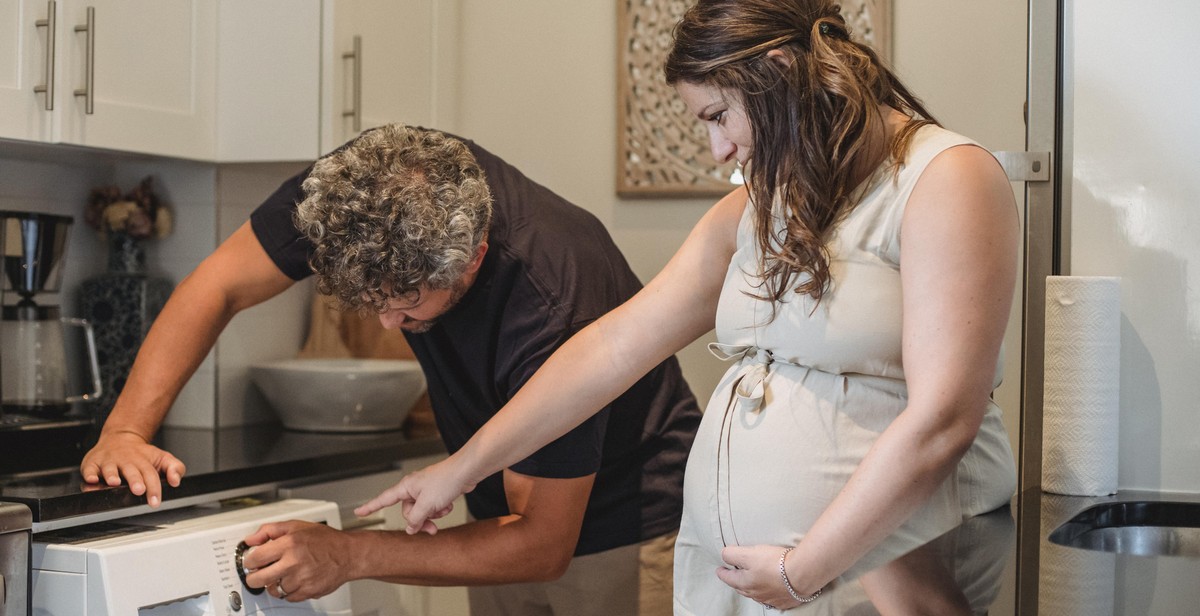The Role of Compromise in a Successful Relationship
Compromise in a relationship is often seen as the key to a successful and long-lasting partnership. It is the act of finding a middle ground between two conflicting opinions or desires to reach a mutually beneficial solution. In any relationship, whether it be romantic, familial, or professional, disagreements are inevitable. However, it is how those disagreements are handled that can make or break the relationship.
What is compromise in a relationship?
Compromise is the act of making concessions in a relationship to reach a resolution that satisfies both parties. It involves listening to each other’s needs, wants, and desires, and finding a solution that meets in the middle. It is important to note that compromise is not about one person giving up their needs entirely or sacrificing their happiness for the other. Rather, it is about finding a solution where both parties can be satisfied.
Compromise requires open communication, respect, and understanding. It is a skill that takes time and effort to develop, but it is crucial in any healthy relationship. In this article, we will explore the role of compromise in a successful relationship, its benefits, and how to effectively compromise with your partner.

Why is Compromise Important?
Compromise is a crucial aspect of any successful relationship. It involves finding a middle ground that both partners are satisfied with, rather than one partner always getting their way. There are several reasons why compromise is important in a relationship:
Building Trust and Respect
When both partners are willing to compromise, it shows that they value each other’s opinions and needs. This builds trust and respect in the relationship and strengthens the bond between partners. It also helps to avoid conflicts and misunderstandings that can lead to resentment and distance in the relationship.
Creating Balance in the Relationship
Compromise helps to create balance in the relationship by ensuring that both partners have equal say in decision-making. This prevents one partner from dominating the relationship and making all the decisions, which can lead to frustration and resentment. It also helps to ensure that both partners are happy and satisfied with the relationship.
Promoting Growth and Understanding
Compromise promotes growth and understanding in the relationship by encouraging partners to be open-minded and willing to listen to each other’s perspectives. It helps to broaden their horizons and expand their understanding of each other, which can lead to a deeper connection and stronger relationship. It also helps to resolve conflicts in a constructive manner and prevents them from escalating into bigger issues.
In conclusion, compromise is a vital aspect of any successful relationship. It helps to build trust and respect, create balance, and promote growth and understanding between partners. By learning to compromise, couples can strengthen their relationship and build a foundation for a happy and fulfilling life together.

The Dangers of Not Compromising in a Relationship
Compromise is an essential component of any successful relationship. It involves the willingness of both parties to make concessions and find common ground. However, when one partner refuses to compromise, it can lead to a variety of negative consequences that can ultimately damage the relationship.
Resentment and Anger
One of the dangers of not compromising is the buildup of resentment and anger. When one partner feels like their needs are not being met, they may begin to feel resentful towards their partner. Over time, this can lead to feelings of anger and frustration, which can manifest in arguments and disagreements. If these feelings are not addressed, they can lead to the breakdown of the relationship.
Power Struggles
Another danger of not compromising is the emergence of power struggles. When one partner refuses to compromise, they may begin to exert their power over the other partner. This can lead to a power struggle, where each partner tries to gain the upper hand. This can create a toxic dynamic in the relationship, where both partners are constantly trying to one-up each other.
Lack of Intimacy
Finally, not compromising can lead to a lack of intimacy in the relationship. When one partner refuses to compromise, it can create a sense of distance between the two partners. This can make it difficult to connect emotionally and can lead to a lack of physical intimacy as well. Over time, this can erode the foundation of the relationship and lead to its eventual breakdown.
In conclusion,
Compromise is essential in any successful relationship. When both partners are willing to make concessions and find common ground, it can strengthen the relationship and help it thrive. However, when one partner refuses to compromise, it can lead to resentment and anger, power struggles, and a lack of intimacy. It is important for both partners to recognize the importance of compromise and work together to find solutions that work for both of them.

How to Compromise Effectively
Compromise is an essential element in any successful relationship. It involves finding a middle ground that both partners can agree on. Here are some tips on how to compromise effectively:
1. Identify Needs and Wants
Before engaging in any negotiation, it’s important to identify what you really need and what you want. Needs are non-negotiable, while wants are things that you could live without. Knowing the difference between the two can help you prioritize your goals and make the right compromises.
2. Communicate Openly and Honestly
Effective communication is key to successful compromise. Both partners should be willing to express their thoughts and feelings in a respectful and non-judgmental way. Listen actively to your partner’s point of view and try to understand where they are coming from. Avoid blaming or attacking language, and focus on finding a solution that works for both of you.
3. Be Flexible and Willing to Give and Take
Compromise requires flexibility and a willingness to give and take. Both partners should be willing to make concessions in order to find a mutually acceptable solution. Be open to new ideas and be willing to adapt your position if necessary. Remember that compromise is not about winning or losing, but about finding a solution that works for both partners.
Conclusion
Compromise is an important skill in any successful relationship. By identifying needs and wants, communicating openly and honestly, and being flexible and willing to give and take, couples can find a middle ground that works for both partners. With practice, compromise can become a natural and effective part of any relationship.

When compromise is not possible
Compromise is a crucial element in any successful relationship. However, there may be times when compromise is not possible, and it becomes necessary to respect each other’s boundaries and seek outside help.
Respecting boundaries
It is important to understand that everyone has their own set of boundaries and limits. When compromise is not possible, it is essential to respect each other’s boundaries and not push beyond what they are comfortable with. This means being willing to listen and understand their perspective, even if it differs from your own. By respecting each other’s boundaries, you are showing that you value and care for each other’s well-being.
Seeking outside help
When compromise is not possible, seeking outside help can be a valuable option. This may include couples therapy, individual therapy, or mediation. A trained professional can help you navigate difficult conversations and find solutions that work for both parties. Seeking outside help is not a sign of weakness but rather a sign of strength and a commitment to the relationship.
Remember that compromise is not always possible, but there are still ways to navigate difficult situations and maintain a healthy relationship. By respecting each other’s boundaries and seeking outside help when needed, you can work towards finding solutions that work for both parties.

Conclusion
In conclusion, compromise is a crucial element in building and maintaining a successful relationship. It requires both partners to be willing to make sacrifices and meet each other halfway. Without compromise, relationships can quickly become one-sided and lead to resentment and conflict.
Compromise allows couples to navigate through differences and find solutions that work for both parties. It also helps in building trust, respect, and understanding in a relationship. When both partners feel heard and valued, they are more likely to feel satisfied and committed to the relationship.
However, compromise should not be confused with sacrificing one’s values or beliefs. It is essential to maintain individuality and communicate boundaries while still being open to finding common ground.
Overall, compromise is a skill that can be learned and practiced in any relationship. By prioritizing compromise, couples can create a strong foundation for a long-lasting, healthy, and fulfilling relationship.
- Remember, compromise is about meeting in the middle and finding solutions that work for both partners.
- Compromise helps build trust, respect, and understanding in a relationship.
- It’s essential to maintain individuality and communicate boundaries while still being open to finding common ground.
- Practice compromise in your relationship to create a strong foundation for a long-lasting, healthy, and fulfilling relationship.
